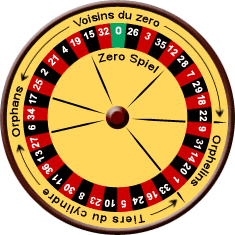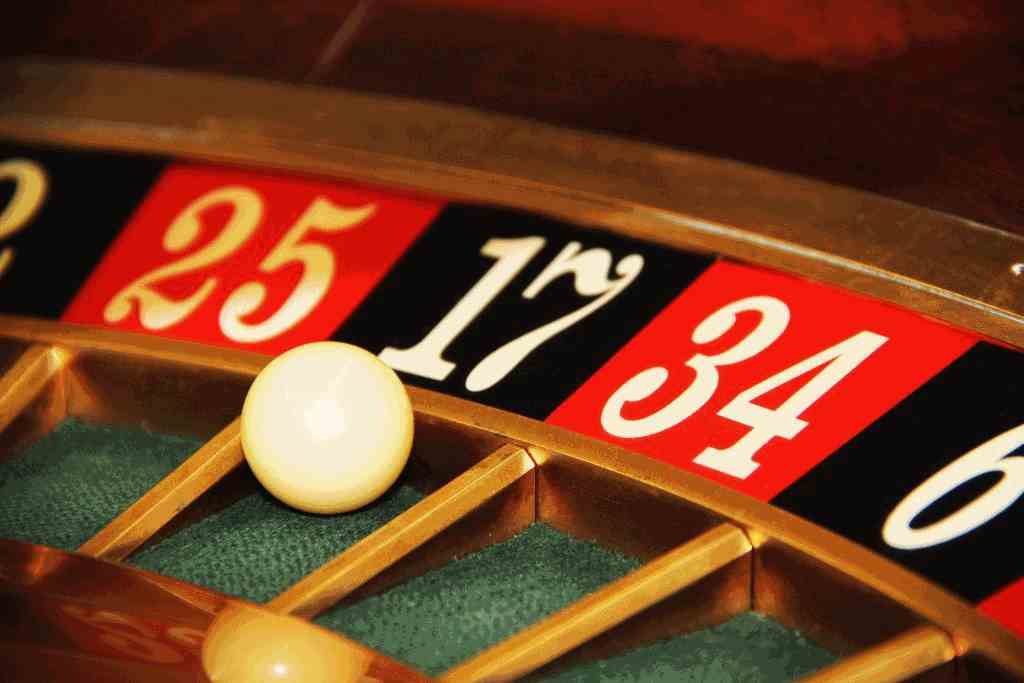
Over the years I have taught many baccarat players and I have sold many of my books to those seeking a professional approach to playing baccarat.
I have met all sorts - but one thing was common - they were all gamblers who had lost a lot of money and they wanted to find a way to get it back.
Some had lost thousands while a few had lost hundreds of thousands and each one also said that they did not believe one could win consistently. If that was their belief, why were they still seeking a solution? Why not stop gambling completely? It baffles me whenever someone I come across tells me that. Why would you keep looking if you truly believe you can't win?
And then there are some who believed me and bought my books but there is a sub-group that I know will never make it - it is the 'compulsive gamblers' group. The number of times I have come across them and the pattern is always the same:
Why is it that all their failures happened later rather than sooner?
Why did no one say they lost on the very first session they played after learning the strategies?
Why?
The answer is simple...
In my books I teach them 3 key points:
BUT the most important lesson I teach is "DO NOT GAMBLE - WORK FOR IT!"
I teach them to treat baccarat as a business - I teach them about bankroll (money management) and I teach them how to make a plan and how to act on that plan.
I warn them about certain "dangers" that can affect their "business" and I stress they need to be patient and work on their plan one session at a time and not overdo it.
I do everything I can to help them achieve their goals and I see them all start off well and go well for a while but the "compulsive gamblers" group always fail.
Why?
You guessed it! They stopped "working" and started "gambling" because...
So at the end of the day, who failed who?

With the convenience of the internet and an abundance of online casinos accessible in most countries, it is understandable that you would rather choose to stay home and play online rather than make that trip to a land-based casino.
Personally I prefer to play in a real land-based casino because I like the ambiance and it is a break from the daily routines at home.
If you prefer to play online, then my advice is to play in an online casino that offers LIVE dealers.
You can generally play roulette online in 3 possible modes:
Option#1: Live dealer in a real land-based casino setting
Option#2: Live dealer roulette in a studio setting
Option#3: RNG Roulette – software simulation
If I had to play online, I would choose option#1 above.
Here, you are looking at a real casino setting where a camera streams a live game to you. You can see other real players at the table and you can see the dealer and the wheel clearly.
This is the best mode as the game is not too fast and you will have sufficient time to make your bet selection and place your bets in time before the dealer calls ‘no-more-bets’.
However, depending on what time it is where the real casino is, the crowd can be thin and if the table is empty then the game can also speed up quite tremendously.
So, choose the time and tables carefully so that you are not playing alone against the casino.
Option#2 above is a studio setting where you can see a dealer and a roulette wheel and all the dealer does is look pretty and spins the ball while chatting to other online players who often seem to be there trying to get a date or start a relationship!
In this mode, the game is very fast and you will be pushed for time if the system to use requires time for analysis and bet selection. You will often miss out some critical bets because of insufficient time and as fate would have it, the missed number will then come up! And because dealers are all sweet and pretty, it is easy to get distracted – so avoid this mode of roulette.
Option#3 is a complete NO NO. You will find that the software will initially let you win and as your confidence builds, you start playing heavier and that is when they hit you. It is just too easy for software to be programmed to do this and I have absolutely ZERO TRUST as far as playing RNG roulette is concerned.
So, if you choose to play online, make sure you go for a Live Dealer in a real casino setting and when the table is not empty! That’s my advice to you.
And before you even think about taking the casino on, I strongly suggest you equip yourself with some powerful analysis and betting strategies.

Don't know what 'virtual gains' are?
Let's use an example to illustrate.
Let's say you are betting on the even-money bets such as BLACK / RED, EVEN / ODD, HIGH / LOW.
The odds are just slightly less than 50-50 (because of the zero or double zeros)
And let's assume you decide to use 'The Martingale' money management strategy where you double after every loss until you win.
Let's see what happens, starting with 1 unit bet:
Spin-# Bet Units Result Overall Balance
-------- ------------ -------- ----------------------
1 1 L - 1
2 2 L - 3
3 4 L - 7
4 8 L - 15
5 16 L - 31
6 32 L - 63
7 64 L - 127
8 128 W + 1
So, in the above table, to play 8-steps of Martingale will require a bankroll of 255 units to secure just 1 unit with a win within 8 bets.
What are you going to do if you only have a bankroll of say, 50 units? You can only go as high as step-5 but step-5 is not always sufficient to secure a win.
This is where 'virtual gains' can help you.
What you do is wait for 3 paper losses before you start betting your 1st step.
So, wait until you have 3 x Ls
Then start betting with 1 unit, doubling up each time you lose until you get a win.
With this strategy, the 3 x Ls are referred to as 'virtual gains'.
You gained 3 steps by waiting for 3 x Ls to appear and therefore artificially giving yourself 8-steps instead of just 5-steps with your limited bankroll.
The disadvantage of this strategy is of course you will lose out on all the wins between step-1 and step-3.
So, will you try this strategy?
I suggest you get hold of some session data and check it out!
If you feel it can work for you, great!
If not, doesn't matter, you can use this approach to think how else you can maximize your wins!

You have more than likely heard or read about it somewhere that there is no mathematical system that can beat the game because it is a negative expectation game.
BUT what does it actually mean? Let's get this point cleared once and for all today.
The expected value for any bet or combination of bets in roulette can be calculated according to this formula:
E(V) = P(W) x (Winnings) - P(L) x (Losses)
where ...
E(V) = expected value if you play a bet over and over again
P(W) = Probability of winning the bet
P(L) = probability of losing the bet
Winnings = Amount you win
Losses = Amount you lose
So, if say you bet $1 on RED every time, then the expected value will be:
E(V) = (18/37) x ($1) - (19/37) x ($1) - assuming this is based on a European roulette wheel with single zero
= $ ( - 1/37)
= - $0.027
What does that mean exactly?
That means if you keep playing the same bet, in the long run, you can expect to lose approximately $0.027 per $1 bet you place.
And that is commonly referred to as the house edge. You can try and mix your bet up with whatever combination you like, it does not alter the math - the expected value will always work out to be the same as illustrated above.
Does that mean you can never win playing roulette?
Does it mean that every player will succumb in the same manner?
Well, let's think about this shall we?
Let's say John (who has several bet selection methods under his belt) and another 100 punters (who are banking on luck) walk into the same casino and each has a bankroll of say $1000.
At the end of the day, John left with winnings of say $100 and everyone else either won some or lose some of their bankroll. Do you think the house edge has anything to do with the outcome of each person or do you think the difference was that John was better equipped to pick more winners than losers compared to everyone else?
If you think casinos bottom line are solely based on the house edge, casinos would not be able to survive.
Based on roulette turnover of say $1 billion, 2.7% of that = $ 27 million - that is NOTHING for a casino. The overheads of running a casino that commands a roulette turnover of $1 billion is not small and $27 million is not going to cut it.
Contrary to popular belief, NOT everyone loses ALL THE TIME. When you go to the casino, have you ever noticed some punters that seem to be always there? No they are not addicted gamblers - they are professional gamblers. Addicted gamblers are usually out looking for money so they can be in the casino!
The point of all this? Yes the mathematical expected value is correct - but why should you care if you have better bet selection skills compared to the average Joe? And the way to have better bet selection skills is to learn some. But don't misunderstand what I am saying here - I am not saying you can just find a superior bet selection skill out of a book - that would be too easy and casinos will go bust.
The roulette strategy ebooks I publish are meant to give you additional ways to improve the bet selection - they are not a fool-proof system that guarantees you winnings every single time nor do they guarantee to beat the game of roulette. Without bet selection skills to back you up, you will eventually succumb - I have NO DOUBT about that.
Even having the best bet selection skills, if you do not have the right mindset or mental discipline, you also do not have any chance of making a living off roulette. Don't kid yourself that it is easy and that you can do it - it is far from easy but it is not impossible.
And to seriously live off the casino, you definitely cannot just rely on one game - you need skills in at least 2 games - like roulette and baccarat - sometimes you just need a change and change is good. It stops your mind being fixated in any particular game. The same with bet selection methods - when you have several ways, you are better equipped to secure wins consistently. So, don't be overly concerned with the mathematical expectations - whether you win or lose on your next visit is not because of it. It will be based solely on your bet selection - period!

Most of us have heard, read, or have been told why you cannot win at roulette because of the house edge and that because of the house edge the casino will always win.
So, what exactly is the house edge? Is it really as powerful as people say it is? Does it affect you every time you play roulette? Can it be overcome?
Let's start by understanding how the house edge is define:
For the single-zero European roulette wheel, there are 37 numbers. if you bet every single number with $1, your total bet is $37. You are guaranteed a win BUT the winning number only pays 35:1 so you will get back $35 plus $1 (the bet itself) to give you a total return of $36. You still lose $1. That's the house edge and is = 1/37 = 2.7%.
For the double-zero American roulette wheel, there are 38 numbers. if you bet every single number with $1, your total bet is $38. You are guaranteed a win BUT the winning number only pays 35:1 so you will get back $35 plus $1 (the bet itself) to give you a total return of $36. You still lose $2. That's the house edge and is = 2/38 = 5.26%.
Now then...
If you walked into the casino today with say $500 as your bankroll to play roulette for a few hours, chances are you will either lose a good chunk, if not all, of that bankroll OR you come out with some winnings. Under these circumstances, regardless of the outcome, the house edge would have had absolutely minimal impact. If you lose the $500, do you think it is because of the house edge? Not at all. You lost because you had poor bet selection that caused you to not pick any winning numbers or enough winning numbers to leave as a winner.
If you left a winner, say with $800, did you make the $300 profit because you beat the house edge? I guess you can say you did but primarily the reason was that you picked more winning numbers than losing numbers without even sparing a thought about the house edge! Essentially, in short term play, the house edge can be safely ignored. The house edge does not affect an individual's play that much in short term play to cause you to lose your bankroll.
As far as the casino is concerned, they are not deriving their income from you individually - they have to look at the big picture and take ALL bets into consideration on all wheels in the casino and that is where they consistently make the established house edge. If you believe that the house edge actually affects your outcome on each visit to the casino, then you might as well not bother playing roulette anymore except for the entertainment value it gives you.
Professional roulette players do not care much about the house edge - they know they do not need to mathematically beat the odds (which cannot be beaten anyways) in order to make money playing roulette.
So what is their secret?
The answer is "Superior Bet Selection".
If you are able to pick more winners than losers during each session of roulette to secure your session target, the house edge cannot touch you or affect your session play in any significant manner at all. So do not play with the fear that the house edge will somehow get you! That's absolute garbage.
All the eBooks published here are focused on helping you with better bet selection strategies and when you combine that with sound money management strategy, you will be able to make money consistently playing roulette and not worry that the house edge will eventually get you. It will not! Superior bet selection will trump house edge any day!

What is the most important aspect of playing roulette, whether casually or professionally?
The answer is BANKROLL - without your bankroll you have nothing. It's like a business without cash-flow or working capital. So, always protect your bankroll above all else.
To protect your bankroll, you need a sound money management strategy. It's not rocket science - just plain common sense.
Let me use an example to illustrate what I am talking about.
Depending on which roulette strategy you plan on using, there is an associated bankroll - let's call that $BR.
To play roulette professionally and treating it as a business, you should have 3 x $BR (with 2 in reserve).
Let's say that $BR allows you to play at $5 minimum table, then your 1st withdrawal target balance should be set to ([3 x $BR @ $5 min.] + [3 x $BR @ $10 min.]).
That formula is the overall cash balance position for a withdrawal of (3 x $BR @ $5 min.) while leaving a bankroll of (3 x $BR @ $10 min.) to give you the same bankroll ratio to play at the next level of $10 min. using the same roulette strategy. In the event that you fail at this new level at a $10 min. table i.e. your 3 x $BR @ $10 min. is wiped out, you still have the original 3 x $BR @ $5 min. to fall back on.
Similarly, the 2nd withdrawal target balance should be set to ([3 x $BR @ $10 min.] + [3 x $BR @ $20 min.]).
That will allow a withdrawal of (3 x $BR @ $10 min.) while leaving a bankroll of (3 x $BR @ $20 min.) to give you the same bankroll ratio to play at the next level of $20 min. using the same roulette strategy. In the event that you fail at this new level at a $20 min. table i.e. your 3 x $BR @ $20 min. is wiped out, you still have the 3 x $BR @ $10 min. to fall back on as well as the original 3 x $BR @ $5 min. to fall back on.
So, using this money management strategy, you are protecting your bankroll as you build it up to allow play at higher levels that will give you higher returns which will also allow you to reduce the risk by lowering your session targets since the amount being won has also increased. Instead of having to win 64 units (assuming a single win = +32 units) @ say $10 min. tables, you just need one win of +32 units @ a $20 min. table and still win the same amount with less risk and less effort.
The toughest sessions will be the very 1st stage where you need to reach ([3 x $BR @ $5 min.] + [3 x $BR @ $10 min.]). Fail at this point and your bankroll will be wiped out. It is therefore imperative that you have some solid strategies you can apply to get you there. Once you get past that initial stage, it will get easier.
Do you have the best roulette strategies to get you past that first stage? If you have, excellent! Just implement the above recommended money management strategy and you will go far. If not, then I suggest you educate and equip yourself with these essential publications that can help you decide on the best strategy to be incorporated into your game plan.
Trust me, if you do not have a plan like this, you will never go far. Stop throwing away good money after bad - stop repeating the same mistakes thinking that your luck will change and that your turn to win big is just around the corner. I guarantee that if you do not change your roulette strategy or implement a sound money management strategy, NOTHING will change.
Many dream of the glamorous lifestyle often associated with that of a high-roller - jetting around the world's casino circuits with a small entourage consisting of beautiful women companions and bodyguards with dark sun glasses - wild parties in VIP Clubs or on a private luxury yacht - and so on and so forth.
Is it really possible?
Yes of course it is, if you treat it like a business. And like any business, if you do it right, you can be wildly successful which will then allow you to enjoy the fruits of your labour.
Is it easy?
Hello NO! Just ask yourself - is it easy for you to build the next Amazon or Facebook? Absolutely not right? So, playing roulette professionally and achieving the level of success that will give you the lifestyle you have always dreamed of is also not easy. Not by a long shot.
Just like running a business, there are many variables in play including:
So you see, there are respective points to take into consideration if you are serious about making money consistently playing roulette.
How much you make will largely depend on what bankroll you have to begin with. You can of course start low and then build up, just like in a business.
So where do you start and how should you go about it?
The 1st thing you need is a business plan - more specifically, you need a roulette business plan. If you do not plan, you are gambling and you are planning to fail big time. Having a plan does not shield you from failure but it helps keep you on track and to make any necessary adjustments along the way.
Start by making a list of what you need (as opposed to what you want) and needs will include all your daily and monthly living expenses which you must take care of (usually with the salary from a job for most people). Then make another list of what you want. For each item in both list - make sure you put a monetary value alongside it so that you can tally it all up.
For starters, focus on the 'needs list' only and when you have achieved that you can then set your sights on your 'wants list'.
Let's say that your needs add up to say, $X (or whatever currency you want to use) per year.
$X a year breaks down to = $X / 12 = $M a month
$M a month breaks down to = $M / 4 = $W a week
$W a week breaks down to = $W / 5 = $D a day (assuming you work a 5-day week)
$D a day breaks down to = $D / 10 = $S a session (assuming you play 10 sessions a day - session time varies depending on strategy)
So, if your needs add up to say $120,000, then your breakdown would look like this:
$120,000 a year breaks down to = $120,000 / 12 = $10,000 a month
$10,000 a month breaks down to = $10,000 / 4 = $2,500 a week
$2,500 a week breaks down to = $2,500 / 5 = $500 a day (assuming you work a 5-day week)
$500 a day breaks down to = $500 / 10 = $50 / session (assuming you play 10 sessions a day)
Now then...
What bankroll do you have to start with? That is the most critical question! If you start with too little, you stand the risk of losing it all very quickly. Ask yourself, if you were to start a business that can nett you $120,000 a year, how much working capital do you think you will need to get it to that level?
For roulette, it will then depend on the strategy you intend to use to achieve your objectives. If you don't have a strategy then you need to equip yourself with some sound strategies - otherwise you are just gambling blindly - you might as well just send your hard earned money directly to the casino - it will save you time!
To make $50 a session is relatively easy with the right strategy and bankroll. Most strategies here recommend that you secure just 2 wins per session. So if you play at $1 tables, that equates to winning 50 units per session or 25 units per win. So you will need to apply a strategy that can deliver 25 units per win.
For example: ADS 2.0 has a flat-bet option that can give you +8, +16, or +32 units on a win.
If you use the +8 option, the bankroll will be the lowest but you will need to secure at least 7 wins to achieve a target of +50 units.
If you use the +16 option, the bankroll of course will be higher but you just need 4 wins to achieve your session target of +50 units.
And needless to say, 2 wins with the +32 option is sufficient to hit your session target of +50 units.
And if your base unit is $2, then the requirements will be halved proportionately, making it even easier - so it is all relative to your available bankroll.
You should use a spreadsheet to keep track of your bankroll and session progress, taking into account occasional withdrawals to meet your needs and so on. And as your bankroll grows, you can at some point play at a higher base level like $3 base, $4, $5, $10, $20 etc. In due course, if you progress steadily (no not rush as Rome wasn't built in a day), then in due course you could well be playing with $500 base units. If each win = +32 units @ $500, at that level you would be making $16,000 a win. You won't need many wins at that level a day to afford the lifestyle we talked about at the beginning of this post!
BUT don't get all dreamy and excited - you WILL NOT get there overnight! You need to plan and plan properly and you must have the mental discipline to stick to your game plan. Along the way, your strategy may fail - and you must be able to handle the good with the bad. A setback is not the end of the world as long as you are disciplined and NOT COMPULSIVE. Like any business, sometimes your business will face a downturn or some other problems but if you are patient and work at it, eventually you ride out the bad times.
Most importantly, you do NOT need to beat the game of roulette in order to make money from it. You just need to apply the correct strategy to secure the wins you need session by session and slowly but surely you will be heading towards your ultimate dream lifestyle.
Start with having the the best tools available to help guide you - read these eBooks to get on the right track. They DO NOT promise you a 'Holy Grail' but they will give you great insight and strategies to secure the session wins you need. If you do not have the skills or knowledge, you do not have a chance in hell of getting anywhere near that dream.
And worst still, if you do not have the patience or discipline, don't even bother, you will only end up blaming everybody else but yourself - I have seen this happen to many people and I don't want you to be the next one to happen to.
If you entered 'roulette betting strategies' into Google, it will kick out almost 300,000 results though not all are relevant. So, let’s start with a definition:
“A betting strategy or betting system is a highly organized methodology adopted by gamblers who are attempting to beat the game or the casino to make a profit. Most betting strategies are based on analysis of game statistics.”
There are many critics of betting strategies and betting systems and they all make similar statements such as this example:
“No matter what system to use, it is impossible to overcome the house edge and therefore you can never beat the <game>” - where <game> can be any game.
The above statement is downright wrong. Let me explain!
(more…)Roulette was first played in Paris in 1796, and it is a very simple game to play. Whether you play in a real land-based casino or online, the setup, the rules, and the odds, remain unchanged. If you play online, then it is best to only play at online casinos that offer live dealer roulette.
The game of roulette is setup with a roulette table, a roulette wheel, and a croupier who spins the ball. Players usually sit at the table on the opposite side of the croupier.
Every roulette table has a minimum bet and a maximum bet for both inside and outside bets. To start playing, players put cash on the table. The croupier counts the cash and gives an equivalent amount of colored chips back to the player.
Every player's chips have a different color so that there is no confusion as to whose chips are on the table layout.
Furthermore, the patterns on the chips vary from table to table so there is no possible confusion between players who may have the same color chips. In any case, a player cannot use chips from one table on another table.
(more…)